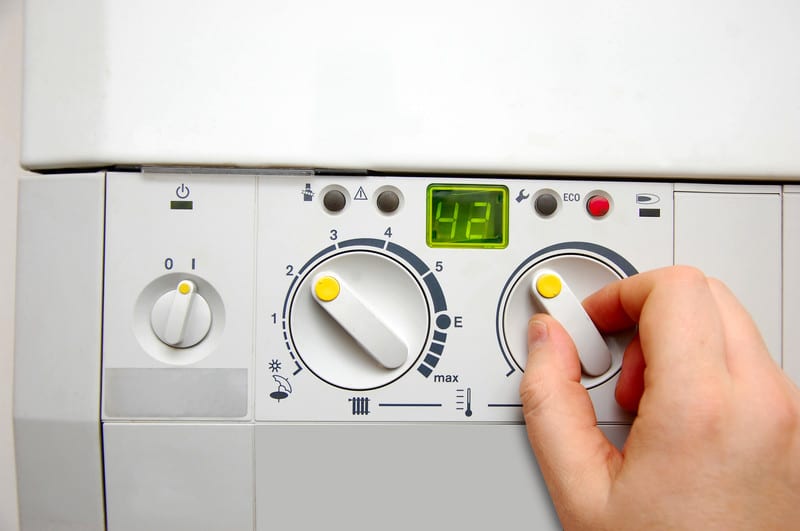Tips for Boiler Maintenance During the Summer
Tuesday, April 1st, 2014
Boiler Maintenance – Last year, Ireland was lucky enough to have one of the best summers it has experienced in many a year. Early indications have hinted that this summer could be every bit as good, with sunshine expected to be the norm for months on end. When the weather is warm and sunny there is little need for gas boilers or oil boilers to be switched on in order to provide heating.

Boiler Maintenance Tips
However, that is not to say that you should ignore your gas or oil boiler maintenance entirely just because the weather is good. The summer is, arguably, the most important time partake in boiler maintenance. Irish weather can change quickly and dramatically, catching people off guard. When this happens, many people can get caught out, finding themselves in a position where their gas or oil boiler is not up to scratch after months of not being used.
By taking the following precautions and establishing a summer boiler maintenance schedule, you can ensure that your oil or gas boiler is in correct working order should the weather decide to turn foul on you all of a sudden.
Use Your Heating Controls
As your gas/oil boiler is used a lot less frequently (if at all) in the summer than it is in the winter, you should make sure that you adjust your heating controls to coincide with this fact. You should turn down your home heating system’s thermostat to a low level for the duration of the warm summer months as well limiting how often your heating controls allow your heating to be turned on. This frugal approach to your heating system during the summer will allow you to save a lot of fuel and money off the cost of your home heating bills without leaving you in the cold.
Remember though, you should always consult with your gas/oil boiler’s instruction manual before making any adjustments to your home heating system’s operations via heating controls. By following the instructions carefully, you will be ensuring that you don’t accidentally make matters worse for yourself by messing up the settings or breaking something.
Check On Your System’s Pumps
Even when the weather is great over long periods of time during the summer and the heat provided by your oil or gas boiler is not required, it is still good practice to turn it on intermittently in order to make sure that its moving parts do not seize up and cease working properly. If left idle for too long, boiler parts can accumulate all manner of dirt, dust, and grime which makes it more difficult for them to operate properly when your boiler is eventually needed.
It is a good idea to leave your boiler running for a duration of five minutes or so every few weeks to ensure that such dirt does not accumulate. Doing this also allows you to check and make sure that your boiler is still in proper working order and has not seized up in any way. When ‘exercising’ your oil boiler or gas boiler in such a way, be sure to turn up your thermostat to a high level while you’re at it. Doing so will give your home heating system’s piping and radiators a similar ‘work out’, lessening the chance of dirt and sludge accumulating in this areas and thereby reducing the likelihood of you needing to avail of a power flush service in the near future.
This is a quick, easy and inexpensive piece of maintenance which can save you a lot of effort in the long term.
Help Yourself Save Money
Generally speaking, old boilers are much less efficient when it comes to converting fuel into usable heating energy than newer ones. For example, a state of the art thigh efficiency condensing boiler converts more than 90% of the fuel it burns into usable heating energy, meaning that it produces very little waste. By contrast, the non-condensing variety of gas or oil boilers (that are maintained properly) tend to convert a maximum of 78% of their fuel into usable energy. In practice though, this percentage is usually significantly lower, meaning a large proportion of the fuel you buy is being wasted. With this in mind, since 2008 any oil or gas boiler upgrades carried out are legally required to be of the high efficiency condensing boiler type. This not only cuts down on the cost of home heating bills but is also more environmentally sound.
If you have plans to get your gas or oil boiler upgraded to a high efficiency condensing model, you should consider having the job carried as part of your summer maintenance routine. Plumbers tend to be less busy in the warmer months, so offer reduced prices on oil and gas boiler upgrades. There is also less chance of you ending up on a waiting list which makes the whole process a lot more convenient. You could potentially save a few hundred euro by simply choosing an opportune time to have your boiler upgrade carried out. This is before you begin to reap the savings associated with the fuel efficiency of a condensing boiler.
If this sounds like a good idea to you then you should not hesitate to contact DeWAR Plumbers via email or on our phone number 01 514 3344 and find out what savings you can make by availing of a gas boiler replacement.
Share this post:
on Facebook
Deprecated: File Theme without comments.php is
deprecated since version 3.0.0 with no alternative available. Please include a comments.php template in your theme. in
/var/www/vhosts/dewarplumbers.ie/httpdocs/wp-includes/functions.php on line
6085



